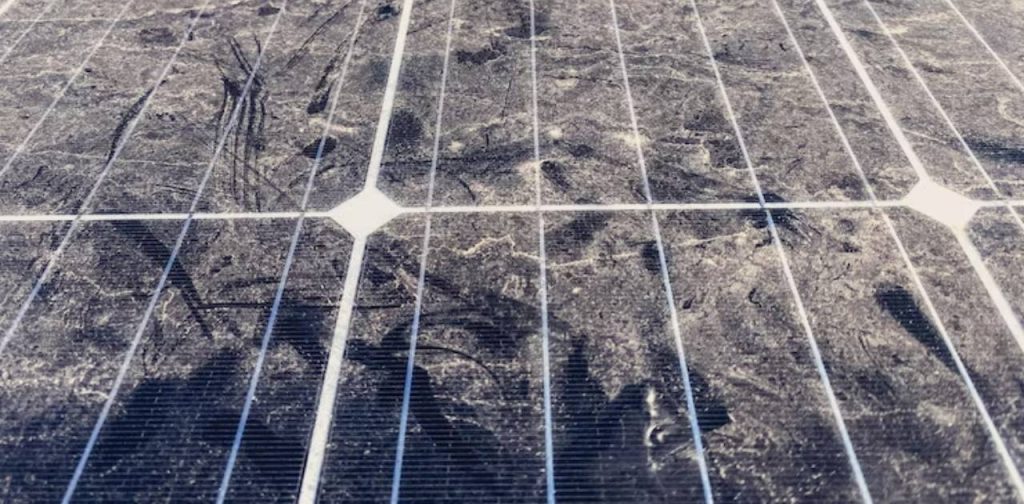Solar panels are a fantastic way to harness the power of the sun and convert it into usable energy. However, their efficiency can be significantly affected by dust accumulation. This article explores the effects of dust on solar panels and why it’s crucial to keep them clean.
Dust Accumulation Dust particles, which can come from various sources such as soil, pollution, pollen, and sand, tend to settle on the surface of solar panels. Over time, this can form a layer of dust that covers the photovoltaic cells of the panels.
Effects – The primary effect is a reduction in their efficiency. The dust layer on the panels’ surface can block sunlight, preventing it from reaching the photovoltaic cells. This reduces the amount of light that can be converted into electricity, leading to lower power output. Studies have shown that dust accumulation can lead to a decrease in solar panel efficiency by 15% to 25%, but in extreme cases, it can be as high as 50%.
Dust and Location The impact of dust on the panels can vary depending on the location. Areas with high levels of air pollution or those prone to dust storms may see a more significant effect on solar panel efficiency due to dust accumulation.
Removing, Cleaning and Maintenance Regular cleaning of solar panels can help mitigate the effects of dust, effectively removing. However, cleaning should be done carefully to avoid damaging the panels. It’s also important to note that rain can naturally clean the panels, but it may not be sufficient in areas with high dust levels. Therefore, preventing dust buildup on solar panels is crucial. Regular maintenance and cleaning of solar panels are essential to ensure maximum energy production and prolong the lifespan of the solar array.
The accumulation of dust and debris on solar panels is a common issue that can impact their efficiency and overall performance. When layers of dust settle on the surface of solar panels, they block sunlight from reaching the photovoltaic cells, reducing the amount of electricity generated. This is particularly problematic in regions with dry climates, where dust buildup can occur more rapidly. Regular cleaning and maintenance of solar panels are crucial to ensure optimal energy production. Some solar panel owners opt for automated cleaning systems or use water and a soft brush to remove dust and dirt manually. Keeping solar panels clean not only improves their efficiency but also helps extend their lifespan, ultimately maximizing the return on investment for solar energy systems.
Conclusion
While dust can pose a challenge to the optimal functioning of solar panels, regular maintenance and cleaning can help ensure they continue to operate efficiently. Understanding the effects of dust on the panels is crucial for anyone looking to invest in solar energy, as it underscores the importance of regular panel maintenance for optimal performance.





